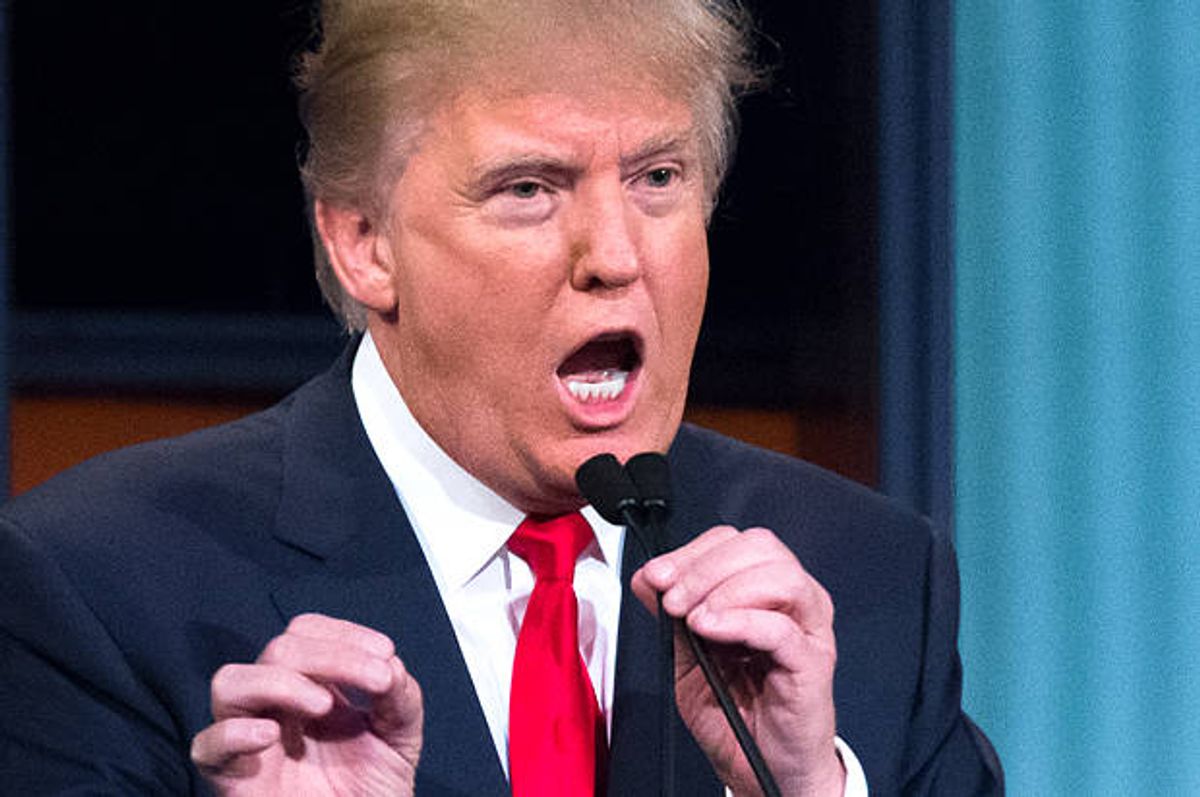This appears to be the week the political press engages in soul-searching about what responsibility, if any, it bears for Donald Trump's unexpected success. New York Times columnist Nicholas Kristof regrets, for example, the $1.9 billion in free coverage the press gave the reality star in chase of ratings. "The media has needed Trump like a crack addict needs a hit,” Kristof quoted former "Today" anchor Ann Curry. Kristof imagines that more fact checking -- from a press that he admits remains far too insulated from the grievances of Trump's supporters -- might have made a difference.
A far more nuanced review comes from FiveThirtyEight's Nate Silver. He tracks Trump's coverage day-to-day since last summer, and shows how Trump succeeded in dominating news largely by creating a never-ending supply of new outrages on a daily basis. "Trump has been able to disrupt the news pretty much any time he wants, whether by being newsworthy, offensive, salacious or entertaining," Silver wrote. "The media has almost always played along."
Perhaps the most interesting detail in FiveThirtyEight's analysis, however, is his theory explaining how Trump reclaimed his control over the media after what Silver describes as a "long period in the early fall" lasting fromSeptember 21 to November 12, "when the news was not very focused on Trump." This was a period when Ben Carson looked like he might have a shot at the GOP nomination, and when Republicans in Congress were creating their own destructive news. But Trump reclaimed his control over the media for good about the same time terrorists attacked several public events in Paris, followed weeks later by a workplace terrorist attack in San Bernardino. "It’s at least plausible that Paris and San Bernardino restarted the cycle of attention to Trump when it might slowly have petered out otherwise," Silver explained the correlation.
Silver, always the diligent statistician, stops short of saying the terrorist attacks -- followed by Trump's call to ban Muslims from the country -- caused the press to resume its obsession with Trump. But the correlation ought to elicit recognition of something else. The obsessive coverage of Trump by the media generally, and cable news more specifically, follows the pattern of coverage of terrorism. Trump's daily outrages work just like ISIS's repeated releases of beheading videos to keep the cable news gaping on in shocked, but well compensated, horror.
That the media (again, especially but by no means only cable news) has magnified the Trump spectacle the same way it magnifies terrorist spectacle should be no surprise. A number of counterterrorism experts have claimed that Trump's attacks on Muslims foster the same kind of cultural polarization between Muslims and non-Muslims that ISIS seeks to achieve. It's not actually clear that Trump's scapegoating of all Muslims generates any more distrust than serial U.S. bombings and wars do, and Muslim animosity in the European capitals being pounded with larger attacks stem from real grievances that go back years.
But Trump and ISIS do rely on the same formula of using spectacle to mobilize visceral fear and with it create polarization. Terrorism -- and America's just-as-lethal serial mass killings -- would not work to instill a fear as effectively if they weren't covered in breathless immediacy by the cable channels, with pundits pitched as experts offering play-by-play well before any facts that could be useful to viewers have even crystallized. We do not need to know on a minute-to-minute basis how many people died in last week's Brussels attacks, but that's what media consumers were gobbling up anyway. Likewise, Trump outrages would not work so effectively if not covered (and then forgotten, Silver's analysis shows) in breathless immediacy. Trump's rallies, with their carefully orchestrated confrontations
In a sense, we're actually lucky with Trump. Given the country's demographics and his already unprecedented negatives, it would take a significant unforeseen event -- another economic crash, perhaps, or massive rioting -- for Trump to actually win the presidency. While his supporters are unlikely to accept a probable Hillary Clinton presidency as legitimate, the election will hopefully show them to be an increasingly small group in this country.
But our addiction to terrorism fear is far more mainstream, with the same D.C. insiders who poo poo Trump's spectacle helping to escalate the terrorist one. That won't go away in November. And so long as it (and serial mass shootings) can dominate the press and motivate copy cat attacks, it will serve to distract this country from far more pressing problems.
This country needs to defeat Trump to stave off an abusive presidency feeding off attacks on Americans. But we also need to wean ourselves from being terrorized, because if we don't, we'll never address the real grievances that make demagoguery like Trump's so effective.



Shares